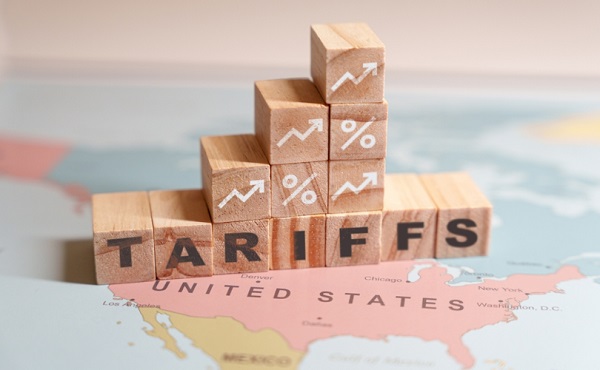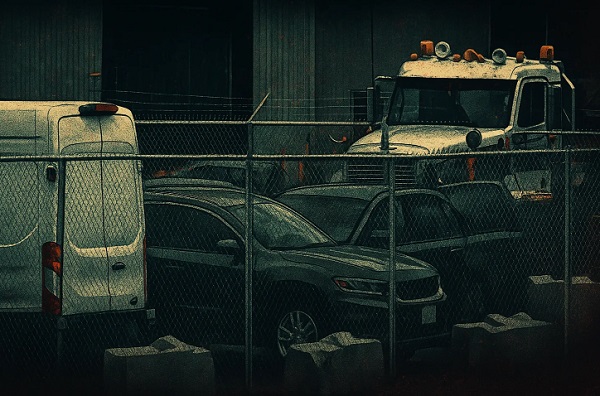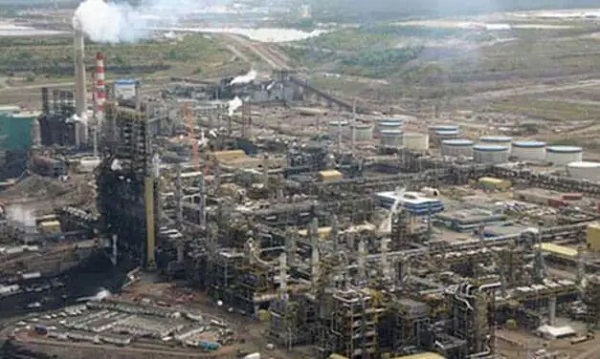Economy
Governments across Canada should prioritize energy infrastructure—including pipelines
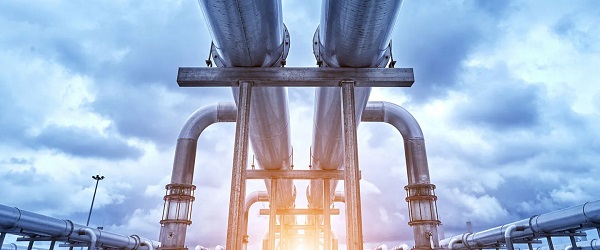
From the Fraser Institute
By Tegan Hill and Elmira Aliakbari
In a recent meeting with Prime Minister Mark Carney, the provincial premiers discussed major infrastructure and energy projects to be fast-tracked through a new federal approval process. While the general sentiment was that the meeting was productive and collaborative, the British Columbia government seemingly shot down Alberta’s proposed pipeline to B.C.’s northern coast. This political resistance to new pipeline infrastructure overlooks the positive potential impact such projects could have for Canada and beyond.
Prime Minister Carney plans to table legislation that would create a new major projects office tasked with reducing approval times from five to two years, among other measures. Major projects must meet numerous criteria before deemed in the “national interest” and expedited. The premiers have compiled a short-list of projects for consideration though the full list has not been publicly released.
Alberta Premier Danielle Smith’s proposed pipeline would transfer bitumen to the Port of Prince Rupert in B.C., which would open up access to Asian markets. B.C. Deputy Premier Niki Sharma, who attended the recent meeting in place of B.C. Premier David Eby, said the proposal has “no proponent” at this stage and that her government plans to focus on “shovel-ready projects.”
And it isn’t just the Eby government resisting the project—Steven Guilbeault, a member of Carney’s cabinet, recently dismissed the need for additional pipeline infrastructure, including to B.C.’s coast, based on incorrect information about the Trans Mountain pipeline’s capacity and future oil demand.
Again, this political resistance ignores key facts about Canada’s energy sector, including our current overreliance on a single customer. Currently, 97 per cent of our oil exports go to the United States. This heavy reliance on the U.S. market has made Canada vulnerable to U.S. policy changes, as highlighted by the recent threat of tariffs on Canadian energy. Expanding pipeline infrastructure—both westward, as proposed by Premier Smith, and eastward—would help us diversify our export market and allow Canada to reach customers in Asia and Europe.
And pipeline expansion is not just about exports; it’s also about enhancing energy security at home. Some parts of our country, namely Ontario and Quebec, remain heavily dependent on U.S. pipelines to meet their energy needs. Specifically, due to the lack of an west-east pipeline dedicated to oil, for more than 70 years Canadian oil extracted in Alberta has passed through the U.S. via Enbridge’s network before returning to Ontario.
Finally, this discussion shouldn’t be limited to oil. There is and will continue to be strong demand for liquefied natural gas (LNG) in many parts of the world, including in Asia, for many years to come, which presents Canada with a significant opportunity to become a major LNG exporter and provide cleaner-burning fuel to countries such as China and India. However, building the necessary infrastructure (pipelines and LNG terminals) is critical if we’re serious about seizing this opportunity.
Governments across Canada should support critical energy infrastructure, including pipelines. This means putting politics aside and recognizing the importance of infrastructure in expanding export opportunities, ensuring energy security, reducing global emissions and creating prosperity across the country.
Banks
Liberal border bill could usher in cashless economy by outlawing cash payments

From LifeSiteNews
Bill C-2 has raised concerns from legal organizations that warn it could lead to a cashless economy in Canada by banning cash payments over $10,000.
The Liberals’ proposed border legislation may quietly usher in a cashless economy by banning cash payments.
On June 3, the Liberal Party introduced Bill C-2 to strengthen border security and outlaw cash payments over $10,000. Legal organizations have since warned that this is the first step to a cashless economy and digital ID system in Canada.
“Part 11 amends the Proceeds of Crime (Money Laundering) and Terrorist Financing Act to prohibit certain entities from accepting cash deposits from third parties and certain persons or entities from accepting cash payments, donations or deposits of $10,000 or more,” the legislation proposes.
While the bill purports to strengthen border security and restore Canada-U.S. relations, many have warned that government regulation of cash payments is a slippery slope.
In a June 4 X post, the Justice Centre for Constitutional Freedoms (JCCF) warned that “If Bill C-2 passes, it will become a Criminal Code offence for businesses, professionals, and charities to accept cash donations, deposits, or payments of $10,000 or more. Even if the $10,000 payment or donation is broken down into several smaller cash transactions, it will still be a crime for a business or charity to receive it.”
The JCCF pointed out that while cash payments of $10,000 are not common for Canadians, the government can easily reduce “the legal amount to $5,000, then $1,000, then $100, and eventually nothing.”
“Restricting the use of cash is a dangerous step towards tyranny and totalitarianism,” the organization warned. “Cash gives citizens privacy, autonomy, and freedom from surveillance by government and by banks, credit card companies, and other corporations.”
“If we cherish our privacy, we need to defend our freedom to choose cash, in the amount of our choosing,” it continued. “This includes, for example, our right to pay $10,000 cash for a car, or to donate $10,000 (or more) to a charity.”
“Law enforcement already has the tools to fight crime,” JCCF declared. “Perhaps they need a bigger budget to hire more people, or perhaps they need to use existing tools more effectively. In a free society, violating our right to use cash is not the answer.”
A move to restrict Canadians’ use of cash is especially concerning as citizens already saw what a Liberal government will do to those who oppose its narrative during the 2022 Freedom Convoy.
In winter 2022, the Liberal government, under former Prime Minister Justin Trudeau, froze the bank accounts of those who donated to the Freedom Convoy, which featured thousands of Canadians camping in front of Parliament to protest COVID mandates.
Similarly, Liberal Prime Minister Mark Carney’s move to restrict Canadians is hardly surprising considering his close ties to the World Economic Forum and push for digital currency.
In a 2021 article, the National Post noted that “since the advent of the COVID pandemic, Carney has been front and centre in the promotion of a political agenda known as the ‘Great Reset,’ or the ‘Green New Deal,’ or ‘Building Back Better.’
“Carney’s Brave New World will be one of severely constrained choice, less flying, less meat, more inconvenience and more poverty,” the outlet continued.
In light of Carney’s new leadership over Canadians, many are sounding alarm over his distinctly anti-freedom ideas.
Exposing Mark Carney:
“Should sex be up for sale” 😮
“Should there be a market for the right to have children?” 🤯 pic.twitter.com/Q4hftgGIMc
— Mario Zelaya (@mario4thenorth) March 21, 2025
Carney, whose ties to globalist groups have had Conservative Party leader Pierre Poilievre call him the World Economic Forum’s “golden boy”. He has also previously endorsed the carbon tax and even criticized Trudeau when the tax was exempted from home heating oil in an effort to reduce costs for some Canadians.
Carney, who as reported by LifeSiteNews, has admitted he is an “elitist” and a “globalist.” Just recently, he criticized U.S. President Donald Trump for targeting woke ideology and has vowed to promote “inclusiveness” in Canada.
Carney also said that he is willing to use all government powers, including “emergency powers,” to enforce his energy plan.
Alberta
Alberta’s Environmental Changemakers Shine at the 2025 Emerald Awards
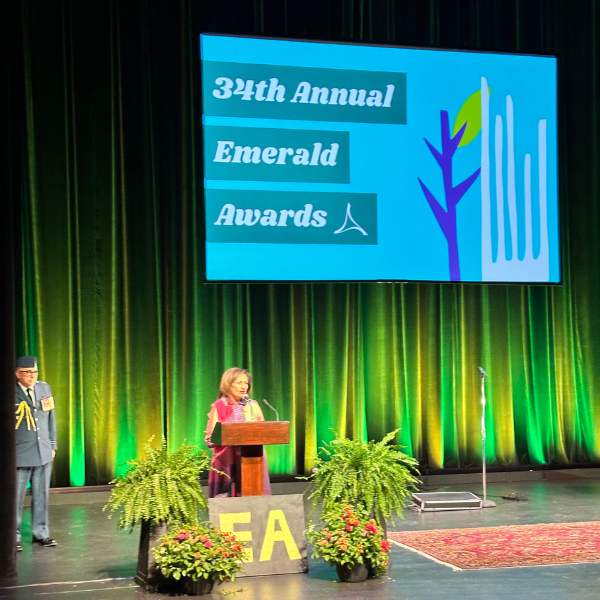
EDMONTON — From grassroots organizers to major industry players, Albertans working to protect the environment were in the spotlight this week at the 34th Annual Emerald Awards. Held at Edmonton’s Timms Centre for the Arts on June 5, the event recognized 14 outstanding recipients from across the province whose work is helping to build a more resilient, sustainable Alberta.
The awards, presented by the Alberta Emerald Foundation (AEF), are among the most prestigious environmental honours in Canada—celebrating projects that tackle everything from emissions reduction and conservation to education and climate adaptation.
This year marked a record-breaking number of submissions, with 72 nominations—AEF’s highest total in over a decade. A panel of independent judges selected 40 finalists across 14 categories, with one recipient named in each.
“These recipients reflect the diversity, creativity, and deep commitment to environmental stewardship we’re seeing across Alberta,” said Marisa Orfei, Executive Director of the Alberta Emerald Foundation. “Whether it’s restoring wetlands, leading innovative waste diversion programs, or inspiring change through education, each project tells a story of positive action.”
More Than Just Recognition
Along with their award, each recipient receives a $1,500 grant to support their ongoing work, a handcrafted trophy made from recycled chopsticks (courtesy of ChopValue YYC and Calgary restaurants), and a feature in the Emerald Documentary Series—which showcases environmental success stories across Alberta.
What sets the Emerald Awards apart is their inclusive approach. Winners span industries, nonprofits, Indigenous communities, youth initiatives, and municipal governments—underscoring that meaningful change can come from anywhere.
The Emerald Awards are the only program of their kind in Canada, and have become a launchpad for environmental innovation and storytelling that reaches far beyond Alberta’s borders.
To see the full list of 2025 recipients, visit albertaemeraldfoundation.ca.
-

 Censorship Industrial Complex2 days ago
Censorship Industrial Complex2 days agoLegal warning sent to Ontario school board for suspending elected school council member
-

 Business2 days ago
Business2 days agoThis Sunday, June 8, is Tax Freedom Day, when Canadians finally start working for themselves
-
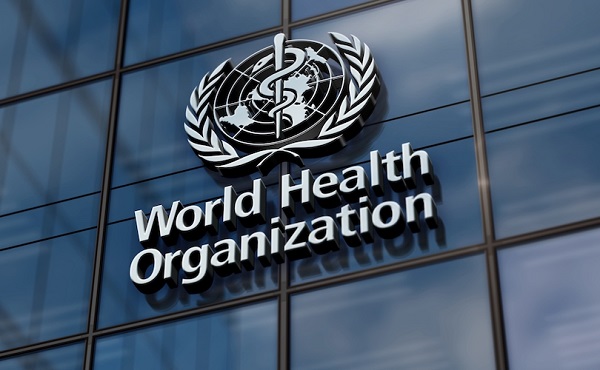
 Health2 days ago
Health2 days agoThe new WHO Pandemic Treaty poses grave threats to freedom and national sovereignty
-
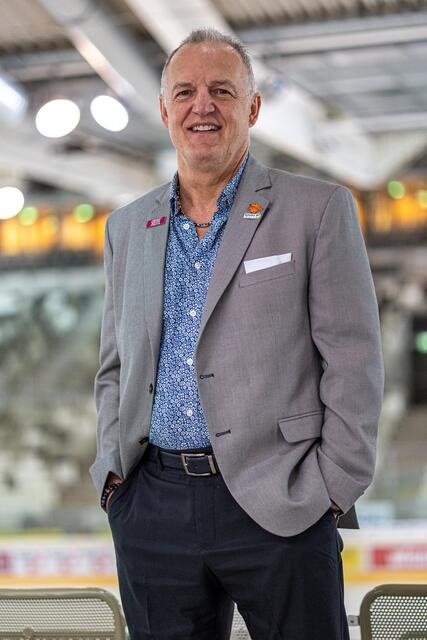
 Red Deer Rebels2 days ago
Red Deer Rebels2 days agoRebels hire two-time league champion Marc Habscheid as Head Coach
-

 Bruce Dowbiggin2 days ago
Bruce Dowbiggin2 days agoI’m A Victim, You’re A Victim, Wouldn’t You Like To Be A Victim, Too?
-

 Crime1 day ago
Crime1 day agoExclusive Analysis: Chinese Couple Smuggled ‘Agroterrorism Weapon’ Fungus into U.S., Echoing Winnipeg Lab Ebola Espionage Case
-

 Alberta2 days ago
Alberta2 days agoUS media talk to Alberta Premier Danielle Smith in Washington
-
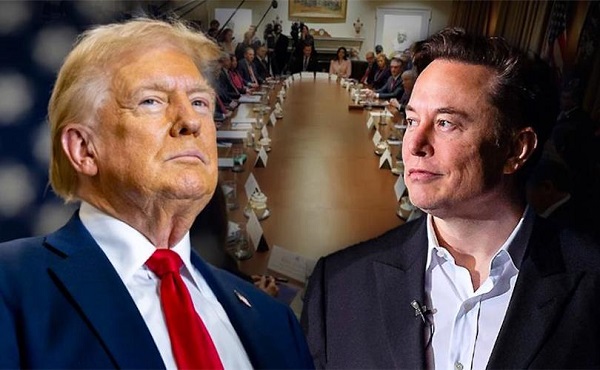
 International1 day ago
International1 day agoMusk claims Trump is named in Epstein files after Trump says Elon went ‘CRAZY’





